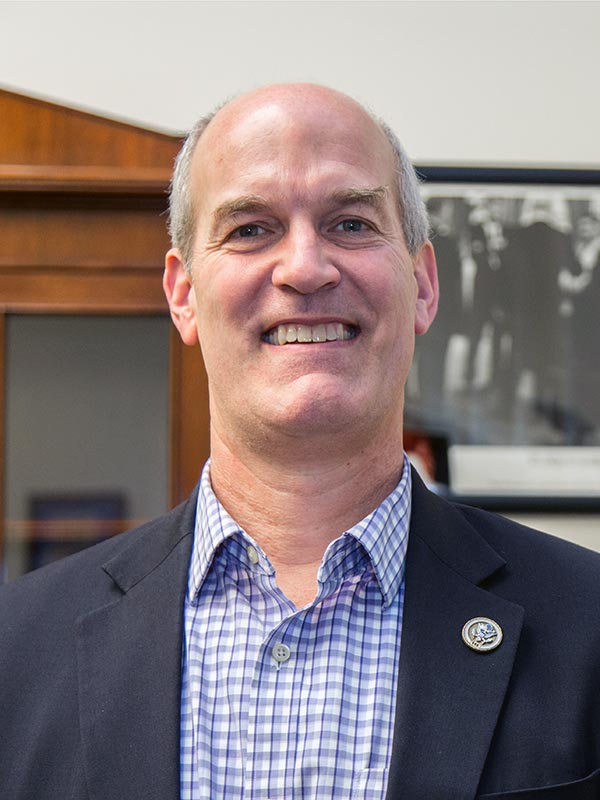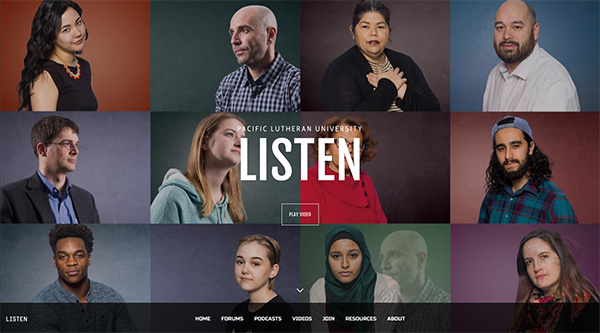Rick Larsen ’87 is the first to admit that serving in the United States Congress has changed him. Larsen, who was first elected in 2000, says his job has taught him to be a better listener.
“I may have brought in a certain set of traits and skills 16 years ago that were somewhat appropriate for the job, but after the last 16 years of hundreds of town hall meetings and phone calls, elections and campaigns, I’ve had to change quite a bit,” Larsen said in his office in Washington, D.C., earlier this year. “There’s still the part of me that is gung-ho about the things I want to do and what I want to work on, but over the last several terms I’ve learned a lot about intentional listening.”
Larsen said one thing he’s learned, especially with constituents, is the importance of staying in the moment and resisting the urge to start brainstorming solutions while he is listening. “My brain always flips into ‘OK what do we need to do about it, and how,’” he said. “That can sometimes be to my detriment because it gets in the way of my listening.”
Larsen, a democrat, represents Washington’s 2nd Congressional District, which includes all of Island and San Juan counties, as well as portions of Snohomish, Skagit and Whatcom counties.
In explaining the value of listening, Larsen harkens back to 2009, when the country was entrenched in debate over President Barack Obama’s proposed Affordable Care Act. To accommodate the large crowds hoping to speak to him about the ACA, Larsen said his staff moved a town hall meeting to Everett’s minor league baseball stadium. The experience left a lasting impression.
“I think I had the largest town hall attendance in Congress that year with 2,800 people at that one event,” Larsen said. “It really changed my view about how to structure our outreach to the people I represent.”
As a member of the House Armed Services Committee and the House Transportation and Infrastructure Committee, Larsen has become an expert on domestic and global policy. But he also believes that part of being an authentic leader and elected official is admitting that he doesn’t have an answer to every constituent question. Often, he says, that sort of honesty can come at a cost.
“I’ve learned that sometimes you have to say you don’t know the answer, and you have to prepare people for that,” Larsen said. “Sometimes it may be difficult for people to accept, because they’ve come to ask a specific question and they want an answer to it.
“But it’s unfair, as well, to give them an answer that is useless or unformed,” he added. “The key, in my view, is to prepare, know your stuff, but don’t imagine you’ll know the answer to everything.”
After nearly two decades in Congress, Larsen has specific advice for citizens meeting with their elected representatives. The crux of his guidance — cut to the chase.
“You may only have 15 minutes, that means you might not have the chance to explain the whole story,” Larsen said. “You have to give enough of the story and then the punchline in that time frame.”
Larsen admits he can grow weary of meetings where constituents recite specific language given to them by advocacy groups. “You don’t need to use the talking points given to you by an association,” he said. “You’re actually living this, so share what it means to you. It’s much more memorable.”
Active listening is at the core of Larsen’s political ethic and personality, but he says that even the most effective listening doesn’t necessarily result in agreement. “I’d love to agree with everybody but that’s not going to happen.”
But, Larsen stressed, he can promise he will listen to what they have to say.
“You can take it or leave it, and I can’t help it if you disagree with it,” he said. “And you can use that to judge me every two years.”



